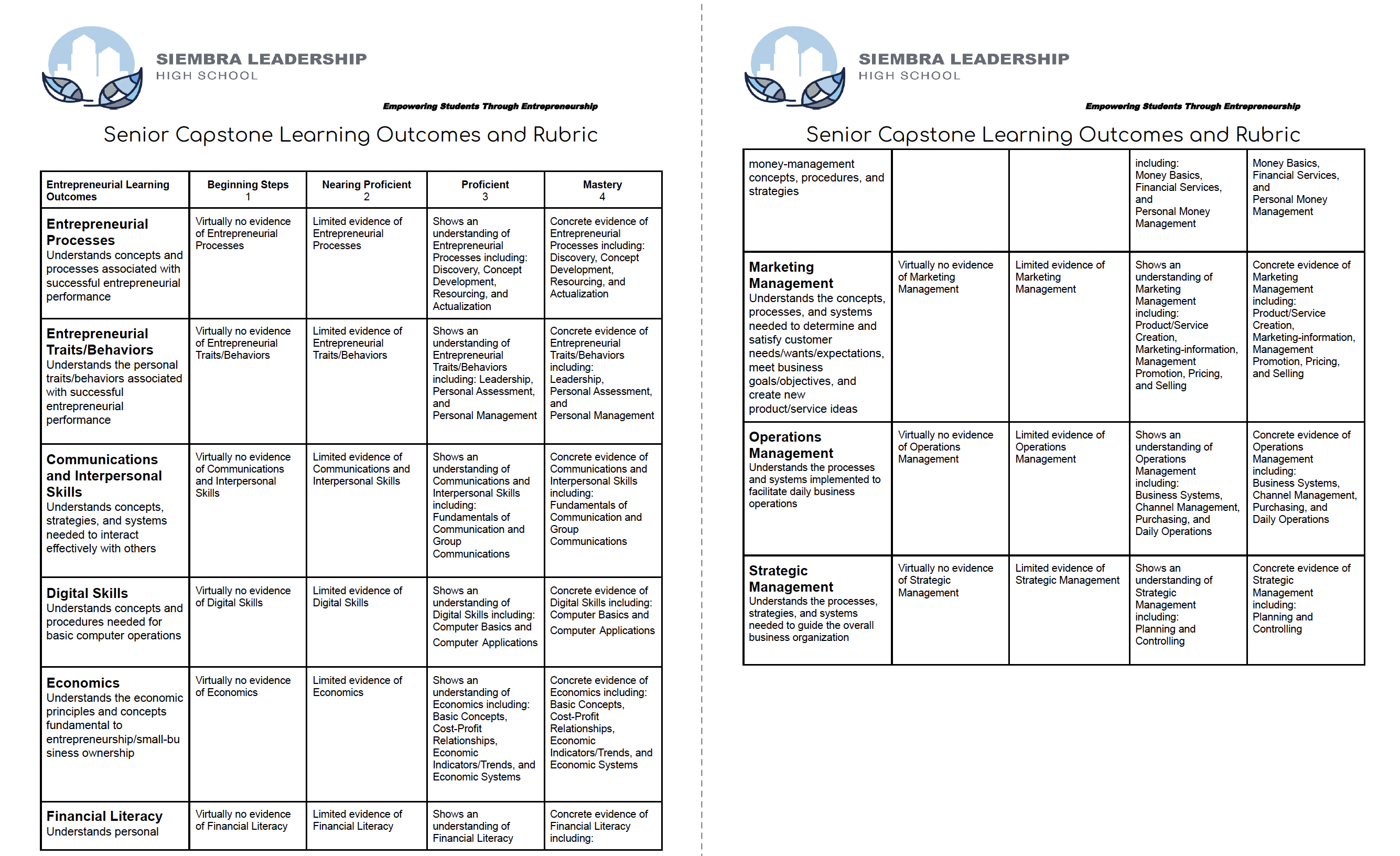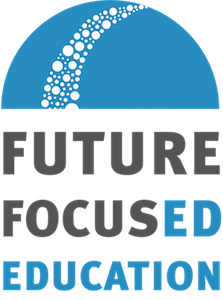Capstones Are Not Harder to Grade. Here’s Why.
Learning Is Easier to Assess When Tied to Real-World Skills

“When students have voice, choice, time, opportunity, and self-reflection in their learning, ‘grading’ capstones can be less work for teachers—and significantly more authentic.”
When I taught English Language Arts at a very traditional middle school for 18 years, I was the weird one.
I ran my classroom as a reader/writer workshop utilizing the project-based learning model. My classroom had a coffee shop vibe with couches, bean bags, tables and chairs. We all read for the first 10 minutes of class. Every day. Myself included. We wrote every day. We dabbled in essay writing, creative writing, poetry, and we evaluated each other every day.
My students grew tremendously as writers and learners mainly because there was no fear or anxiety around right or wrong answers or high stakes tests. All of this made complete and total sense to me and my students and the iReady and PARCC scores backed that up.
When Assessment Is Relationship-Based
Assessing all of this was surprisingly simple. It was a ton of formative assessment based on relationship building. The students and I knew each other really well. We knew each other’s strengths and areas of growth. I gave them a lot of feedback about what they were doing well and where they could improve. In addition, I welcomed that feedback from them in regards to my class and my teaching.
The capstone model is inherently similar in that students have voice, choice, time, opportunity, and guidance in their learning. Ideally a capstone is a culmination of several years of work that includes lots of self-reflection along the way. This is where assessing and ultimately “grading” capstones can actually be less work for teachers—and significantly more authentic feedback.
Here’s how…
- Capstones tie learning to authentic life skills
Authentic industry-pertinent learning outcomes give capstone students a much more real-life experience. I have yet to work with a capstone student who asked, “When are we ever going to need to know this?” The importance and authenticity are built into the project.
At Siembra Leadership High School, our capstone students spend all four years developing their own business or non-profit. Every project a student works on is housed in learning outcomes that community partners have pitched and are the experts around.
Assessment is always easier when the student understands why they’re learning certain skills and how it will apply to their lives. In this way, capstones bring students along; grading criteria feels fair, authentic, and applicable to them throughout the learning journey, rather than in one-time high-stakes test at the end.
2. Rubrics can quantify learning
A common myth regarding capstone grading is that the assessment piece is not quantifiable. At Siembra we have developed entrepreneurial learning outcomes and a rubric that shows whether or not a student has hit mastery.
The learning outcomes come directly from entrepreneurs in our downtown community who meet with us once a month to help us incorporate entrepreneurship into our curriculum as authentically as possible.
Here’s an example of the Siembra rubric:

3. Capstones develop interdisciplinary skills
Capstones also give students the opportunity to deeply dive into specific learning outcomes that are authentic to their project rather than just glossing over hundreds of unconnected learning outcomes. At Siembra we call this Mastery Model.
When students are the masters of their learning outcomes they can answer virtually any questions regarding that content and can also teach it to others. When students are showcasing their final projects imagine a room full of community partners, staff and other students all learning content from the masters.
This makes assessment easier because students and community members are doing most of the authentic assessment heavy lifting with guidance from the capstone instructor. And with clear learning outcomes, the instructors, capstone students, and community members can point to the quantifiable data that students mastered.
4. Teachers don’t do it alone
With the relationship between student and capstone facilitator fully realized, the assessment piece becomes the job of both parties. The capstone facilitator offers a wide variety of formative assessment throughout the capstone journey. The capstone student offers reflections along the way that show proficiency in specific learning outcomes.
The entire process culminates in a Celebration of Learning at the end where the community is invited to experience the mastery of learning during the final showcase. During this final showcase the capstone student gets feedback from community members who are experts in the project the student chose.
This is an example of a senior capstone student showing proficiency in the Learning Outcome we call “Entrepreneurial Discovery”:
“I want to discover how to promote business and manage funds to continue growth in revenue as well as gain connection to as many people as possible. I want to discover the responsibility of running a business effectively and efficiently. Learning how to make continuous daily sales would be a really big thing I would like to discover.”
Why It Matters
Capstones are grounded in authentic learning which will excite many educators. But there are still some barriers that prevent educators from getting excited about authentic, relationship-based learning.
Sometimes it feels like educators are taught to focus so narrowly on college prep, that they forget learning can be fun. I would encourage all educators to listen very carefully to what students are saying about their own learning. They are the true experts on what they need. And always remember that the relationship piece is the key. With a powerful authentic relationship among students, instructors, community members, and mentors the assessment piece is actually much easier.


Comments
Pingback: Why Local and National Education Leaders Reject Standardized Testing - Future Focused Education